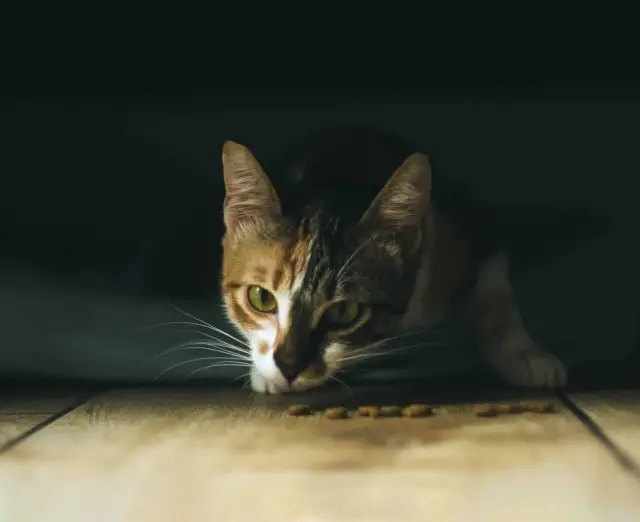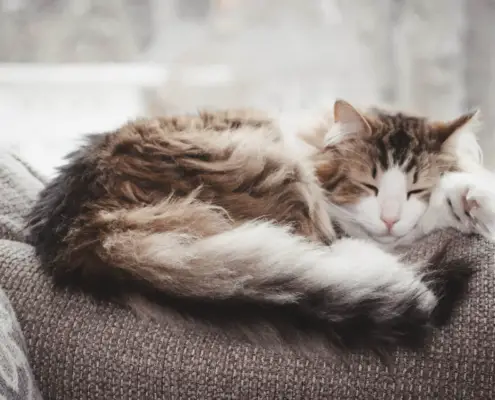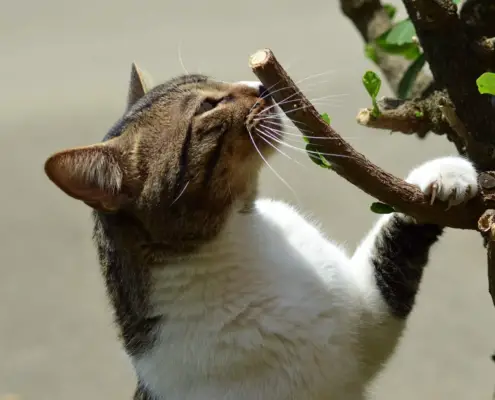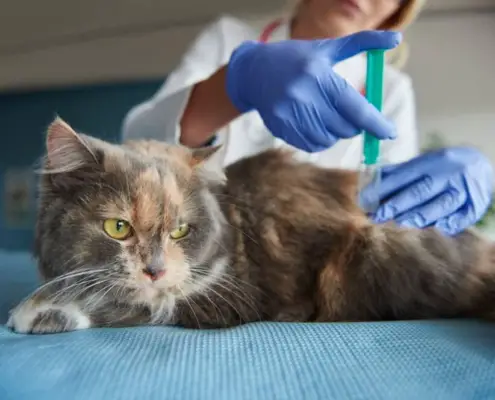
Cats, just like humans, require a balanced diet to maintain optimal health and wellbeing. Understanding your cat’s nutritional needs is essential in ensuring they receive the proper nourishment they need. Cats are obligate carnivores, meaning they require a diet high in animal protein. Additionally, they need essential vitamins, minerals, and fatty acids for a healthy coat, strong bones, and overall vitality.
When it comes to feeding your cat, it’s important to choose high-quality cat food that meets their nutritional requirements. Look for cat food that contains real meat as the primary ingredient and avoids fillers and artificial additives. Reading the labels and understanding the ingredients list will help you make an informed decision about the best food for your feline friend.
Factors to consider when determining your cat’s feeding schedule
Several factors come into play when determining how many times you should feed your cat in a day. These factors include their age, activity level, health condition, and personal preferences. Kittens, for example, have higher energy needs and may require more frequent meals compared to adult cats. Active cats who spend a lot of time outdoors may also benefit from multiple meals throughout the day.
It’s important to observe your cat’s eating behavior and monitor their weight to ensure they are receiving the appropriate amount of food. Some cats prefer grazing throughout the day, while others may be more inclined towards scheduled feeding times. Understanding your cat’s individual preferences and adapting their feeding schedule accordingly can help maintain their overall health and prevent weight-related issues.
The importance of portion control for cats
Portion control plays a crucial role in your cat’s feeding routine. Overfeeding can lead to obesity and its associated health problems, while underfeeding can result in malnutrition. It’s essential to feed your cat the right amount of food to maintain a healthy weight and prevent any potential health issues.
Consulting the feeding guidelines provided on the cat food packaging is a good starting point. These guidelines typically recommend the appropriate portion size based on your cat’s weight and age. However, keep in mind that these are general recommendations, and each cat is unique. It’s important to monitor your cat’s body condition and adjust their portion sizes accordingly. If you are unsure about the right portion size for your cat, consult with your veterinarian for personalized recommendations.
How often should you feed a kitten vs. an adult cat?
Kittens have higher energy requirements due to their rapid growth and development. They need to be fed more frequently compared to adult cats. Generally, kittens should be fed four to six small meals throughout the day. As they grow older, their feeding schedule can be gradually transitioned to three meals a day.
On the other hand, adult cats can be fed two to three meals a day, depending on their preferences and lifestyle. Some cats may prefer two larger meals, while others may prefer three smaller meals. It’s important to establish a routine that works best for your cat and stick to it. Regular feeding times can help maintain a healthy digestive system and prevent your cat from becoming overly hungry or anxious.
Common feeding schedules for cats
There are several common feeding schedules you can consider for your cat. One option is free-feeding, which involves leaving food available for your cat at all times. This method is suitable for cats who are self-regulating and can manage their own food intake without overeating. However, it’s important to monitor your cat’s weight regularly to ensure they are not gaining excessive weight.
Another feeding schedule is meal-feeding, where you provide specific meals at set times. This method allows for portion control and can be beneficial for cats prone to overeating or weight issues. You can divide the daily recommended portion into two or three meals, depending on your cat’s preferences and needs.
Signs that your cat may need a change in their feeding schedule
It’s important to pay attention to your cat’s behavior and body condition to determine if their feeding schedule needs adjustment. Signs that your cat may need a change in their feeding schedule include excessive weight gain or loss, lethargy, changes in appetite, or frequent begging for food.
If you notice any of these signs, it’s essential to consult with your veterinarian. They can assess your cat’s overall health and provide recommendations on adjusting their feeding schedule, portion sizes, or even switching to a different type of cat food.
Tips for transitioning your cat to a new feeding schedule
Transitioning your cat to a new feeding schedule should be done gradually to avoid any digestive upset. Start by introducing small changes to their feeding routine, such as adjusting meal times or portion sizes. Monitor your cat’s response to the changes and make further adjustments as needed. The transition period may take a few weeks, so it’s important to be patient and observant.
Additionally, ensure that your cat has access to fresh water at all times. Hydration is crucial for their overall health and helps prevent urinary tract issues. Clean their water bowl regularly and consider providing multiple water sources throughout your home.
The role of treats in your cat’s feeding routine
Treats can be a fun and rewarding part of your cat’s feeding routine. However, it’s important to use them in moderation and choose healthy options. Many commercial cat treats are high in calories and can contribute to weight gain if given excessively. Look for treats that are specifically formulated for cats and are made with high-quality ingredients.
When giving treats, consider incorporating them into your cat’s overall calorie intake for the day. Reduce the portion size of their regular meals accordingly to maintain a balanced diet. Treats should never make up more than 10% of your cat’s daily calorie intake.
Consulting with a veterinarian for personalized feeding recommendations
Every cat is unique, and their nutritional needs may vary. Consulting with a veterinarian is the best way to ensure your cat is receiving the appropriate feeding schedule and portion sizes. They can assess your cat’s overall health, consider any specific dietary requirements, and provide personalized recommendations.
A veterinarian can also help address any concerns or issues related to your cat’s feeding routine. Whether it’s transitioning to a new feeding schedule, managing weight-related problems, or choosing the right type of cat food, a veterinarian is a valuable resource for cat owners.
Conclusion
Determining the ideal feeding schedule for your cat is crucial for their overall health and wellbeing. Factors such as age, activity level, and personal preferences all play a role in deciding how many times you should feed your cat in a day. Understanding your cat’s nutritional needs, practicing portion control, and monitoring their weight and behavior are essential in maintaining a balanced diet.
By observing your cat’s individual preferences and consulting with a veterinarian, you can establish a feeding routine that meets their specific needs. Remember to choose high-quality cat food, provide fresh water at all times, and use treats in moderation. Your cat’s feeding schedule should be tailored to their unique requirements to ensure they live a long, healthy, and happy life.
If you enjoyed my article, I would appreciate you sharing it with your network.

Sima Ndlebe
Sima writes for CatBuzz. He is interested in Cats, Health and Fitness, and Entrepreneurship.
Published: 16 December 2023
Related Articles
Disclaimer
The content found on CatBuzz.org is presented on an "as is" basis and is intended for general consumer information and education purposes only. Any utilization of this information is voluntary and solely at the user's own risk.
None of the articles or content should be regarded as, or used in place of, veterinary medical advice, diagnosis, or treatment. The information provided on the website is purely for educational and informational intentions and should not be considered a substitute for professional guidance from a veterinarian or other qualified expert. The articles are designed to inform consumers about veterinary healthcare and medical matters that may impact their cat's daily life. It should be noted that this website and its services do not constitute the practice of any form of veterinary medical advice, diagnosis, or treatment. CatBuzz.org explicitly disclaims any liability for any direct or indirect damages or losses that may arise from the use of or reliance on the information contained within the content.
Consumers must consult a veterinarian, veterinary specialist, or another qualified veterinary healthcare provider when seeking advice regarding their cat's health or medical conditions. It is important not to ignore, avoid, or postpone seeking medical advice from a veterinarian or other qualified veterinary healthcare provider solely based on information obtained from this website. If you believe that your cat may be experiencing a medical issue or condition, it is imperative to promptly contact a qualified veterinary healthcare professional.




